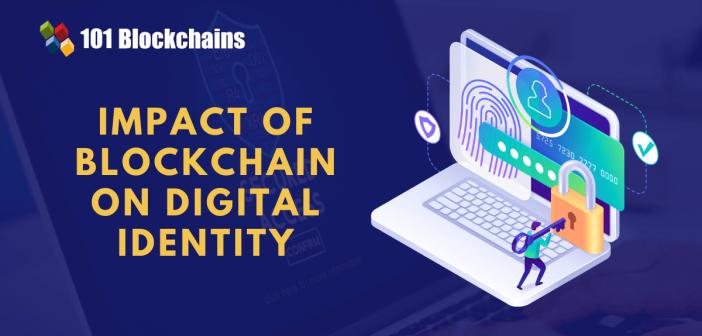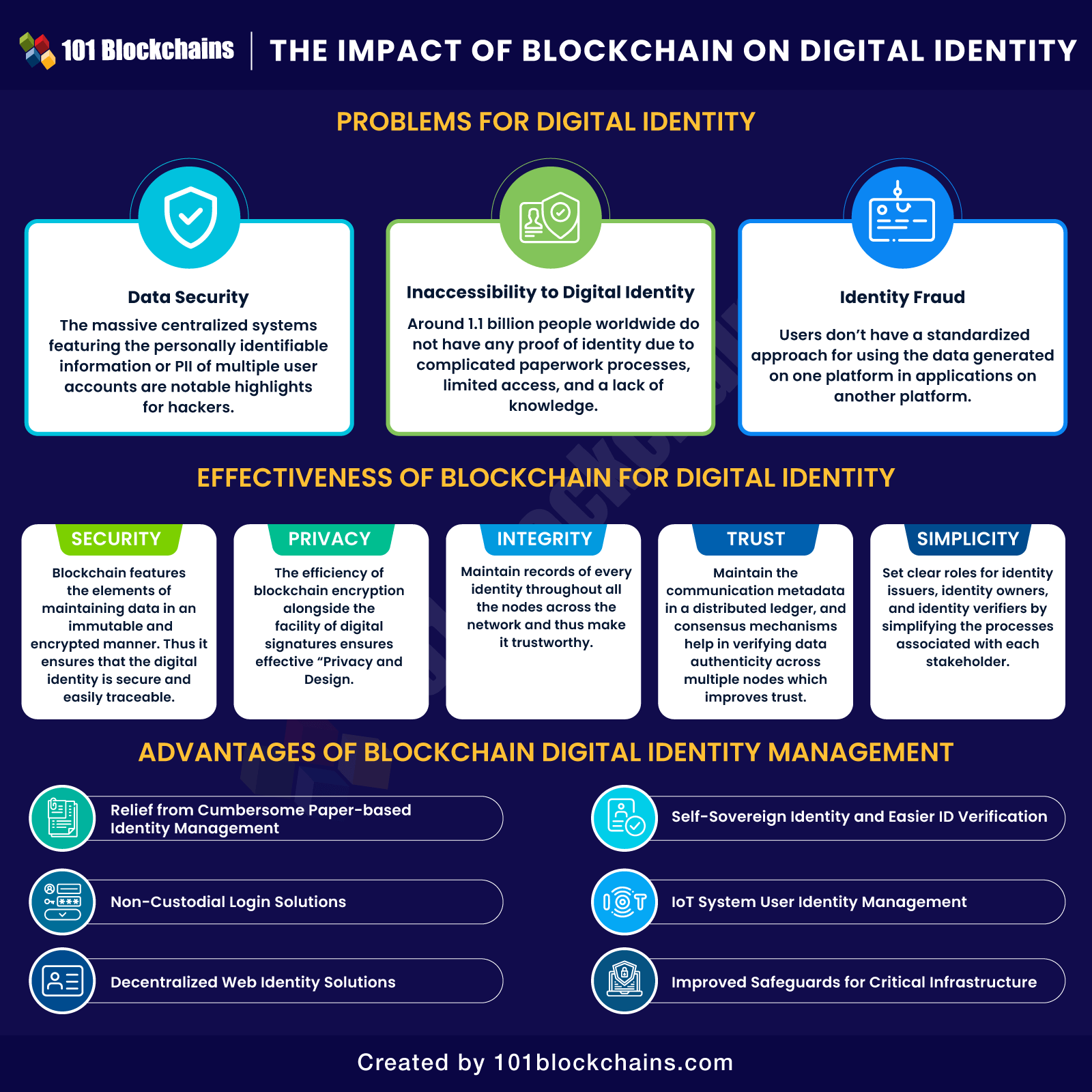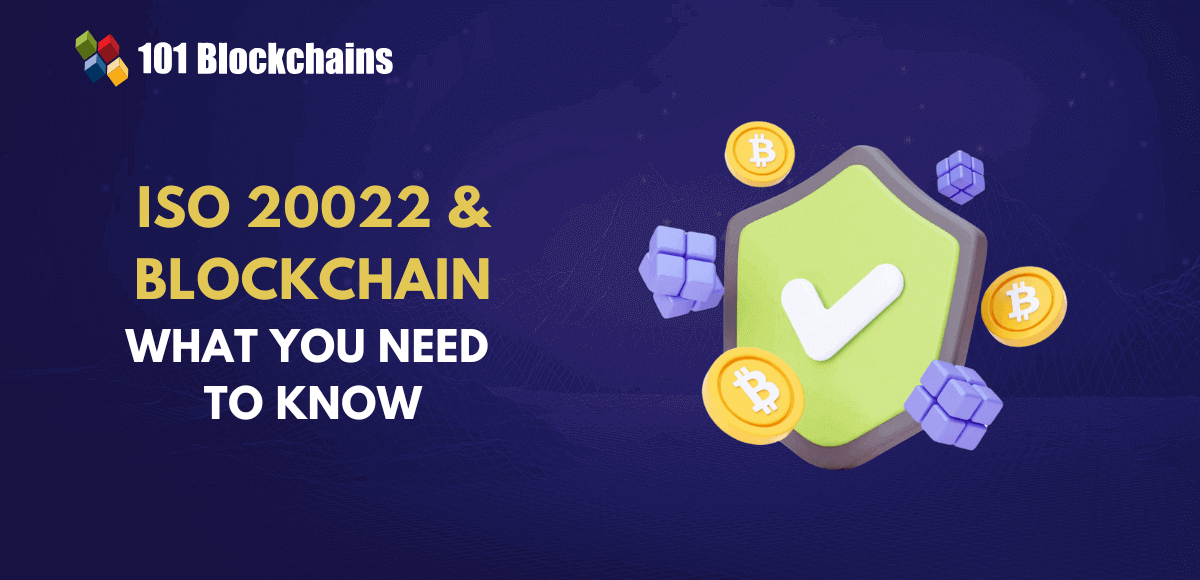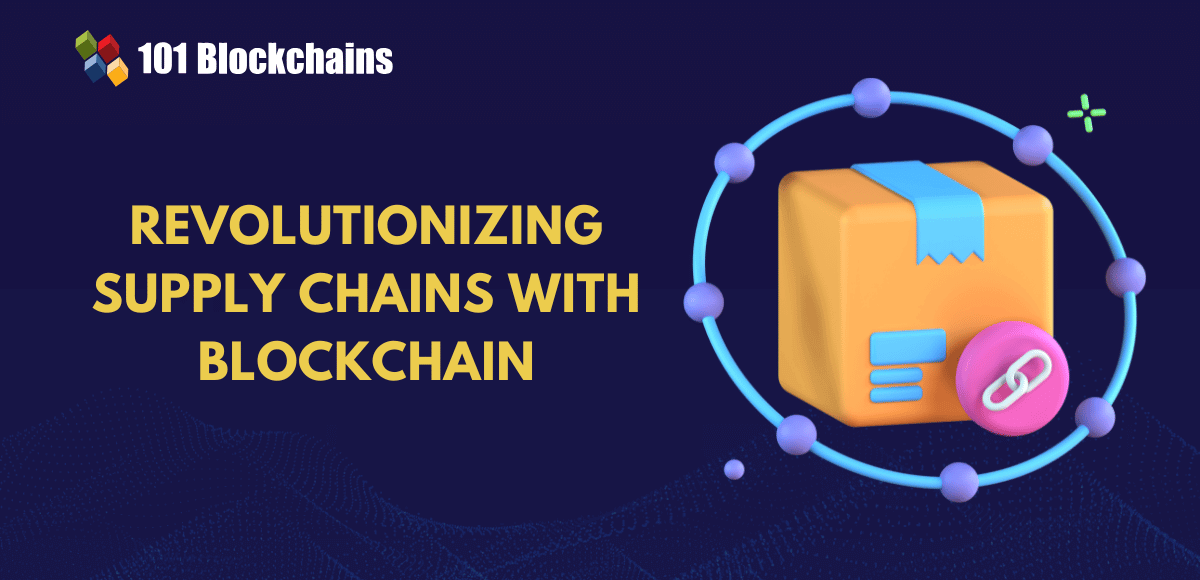Learn how blockchain truly works, master key definitions, and uncover what makes smart contracts so "smart." Dive into the fundamentals, gain valuable insights, and start your blockchain journey today!

- Blockchain
Georgia Weston
- on July 22, 2022
The Impact of Blockchain on Digital Identity
The scale of the technological revolution has been surpassing many traditional margins with the proliferation of Industry 4.0. Now, the whole world is preparing to familiarize with the use of autonomous and intelligent systems based on machine learning and data. However, one of the significant elements in the world of digital services points to digital identity.
Digital identity basically refers to the digital representation of information pertaining to a particular individual, organization, or group. Is the digital identity blockchain technology equation feasible? Blockchain is like the new kid on the block with all the tools to make digital identity management more interesting, secure, and flexible.
At the same time, it is new in the market of digital identity technologies. Therefore, it is important to learn more about the impact of blockchain technology on digital identity and how transformative it can be. The following post offers a detailed outline of the impact of blockchain on digital identity and helps you verify whether blockchain is a reliable bet when it comes to digital identity.
Want to understand the concept of decentralized identity in detail? Enroll now in Decentralized Identity Fundamentals Course
What is Digital Identity, and Why is it Important?
Before reflecting on new approaches to digital identity using blockchain, it is important to reflect on the significance of digital identity itself. Why should you worry about introducing blockchain technology in the domain of digital identity? The notion of digital identity has been generalized to assumptions that digital identity includes only the information about personal data available online to all individuals. If you thought that your digital identity includes only your social media profiles, your email addresses, and your physical address, then you are wrong.
Your digital identity encompasses everything you have on the web, including images, shopping preferences, website usage behavior, and bank account information. However, the existing representation of digital identity varies across different platforms, including banking systems, social media platforms, and telecom networks. Digital identity features the best offline and online identity of an individual.
The answer to “what is digital identity in blockchain” would also develop on the foundations of the importance of digital identity. It is essential for ensuring accuracy during the course of speeding up the process for customer on-boarding. At the same time, digital identity is also crucial for preventing any money laundering or fraudulent activity. Digital identity management could help in streamlining and standardizing citizen services offered by nations.
The significance of digital identity is evident in the facility of social transformation projects alongside ensuring economic improvements for different communities through citizen welfare measures. One of the examples of such applications of digital identity refers to the National Digital Identity or NDI system in the Smart Nation initiative in Singapore. The NDI system would help citizens secure access to e-governance services.
Build your identity as a certified blockchain expert with 101 Blockchains’ Blockchain Certifications designed to provide enhanced career prospects.
Existing State of Digital Identity
The concept of digital identity works in different ways for companies, individuals, and IoT devices. You must learn about the existing state of digital identity before reflecting on digital identity blockchain projects and their performance. Here is an overview of how digital identity works for different groups.
-
Organizations
Organizations have to deal with formidable challenges in digital identity management as they procure sensitive information regarding users. These companies store the user data along with routine business data. At the same time, the organizations have to comply with privacy-centric regulations. On the other hand, companies are barely able to use the data locked in highly safeguarded data vaults. As a result, organizations could not make the most of the full potential of their digital identity management capabilities.
-
Individuals
The concept of digital identity using blockchain has gained momentum only after considering the way individuals use digital identity today. Identity is one of the critical and mandatory elements for ensuring functionalities of a society and its economy. With a proper method for self-identification and ownership of assets, digital identity could foster growth in societies as well as global markets.
On the other hand, physical forms of identification are not available to everyone. Almost 1.1 billion people all over the world do not have any way of claiming ownership over their identity. Seems like a huge problem in a time when blockchain technology can transform digital identity, isn’t it?
-
IoT Devices
Identity is not a troublesome concept for companies and individuals but also for IoT devices. The world will have more than 10 billion devices connected to the internet in 2020, and the number might grow to 22 billion by 2025. How is digital identity blockchain relevant for IoT devices? Majority of IoT technologies don’t employ suitable identity and access management capabilities. At the same time, security takes one step back as a tradeoff for implementing basic management capabilities in IoT devices.
Want to develop expertise in the IoT? Enroll Now: IoT Fundamentals Course
Problems for Digital Identity
Why do you need blockchain for digital identity? The existing state of digital identity and the concerns of companies, individuals, and IoT devices have been clearly evident. At the same time, it is important to notice how digital identity blockchain projects can help in resolving many existing identity issues.
The notable identity issues resolved by blockchain identity management systems include inaccessibility and data security. Blockchain technology also helps in fighting against the problem of fraudulent identities as an additional advantage. Here is an overview of the problems for digital identity, which set the need for blockchain in digital identity.
-
Data Security
One of the most common highlights in the identity information stored on centralized government databases would point at the setbacks in security. The databases run on legacy software and feature multiple single points of failure. Therefore, the massive centralized systems featuring the personally identifiable information or PII of multiple user accounts are notable highlights for hackers.
According to a recent survey, personally identifiable information accounted for a major share of the targeted data in the case of breaches. As a matter of fact, compromises in consumer data records resulted in an approximate cost of over $654 billion for businesses in 2018.
-
Inaccessibility to Digital Identity
The need for digital identity blockchain solutions also draws profoundly on how digital identity is still inaccessible to many. Around 1.1 billion people worldwide do not have any proof of identity. Generally, traditional identification systems come with the burden of complicated paperwork processes, limited access, and a lack of knowledge regarding personal identity and expenses. Therefore, people are not able to have an identity of their own.
Identity is a crucial necessity for accessing banking services and other social services such as applying for jobs or accessing other government services. Blockchain-based identity can gain momentum as majority of people without access to digital identity can access mobile phones. As a result, it can help in promoting blockchain-based identity solutions on mobile phones with better resolution of the needs of citizens.
-
Identity Fraud
The digital identity landscape needs more blockchain digital identity companies to revolutionize the way users can capitalize on digital identity. Users could juggle different identities with the usernames and passwords for the websites. In such cases, users don’t have a standardized approach for using the data generated on one platform in applications on another platform.
On top of it, the limited association of digital and physical identities also enables better flexibility for creating fake identities. However, blockchain digital identity projects could leverage the technological advancements in cryptography to fight these issues. Blockchain can help in developing new identity management systems with digital identity frameworks featuring decentralized identifiers.
Start learning Blockchain with World’s first Blockchain Skill Paths with quality resources tailored by industry experts Now!
What is Digital Identity in Blockchain?
Blockchain can resolve the pressing concerns for identity management with promising improvements. However, many of you must have doubts regarding the role of blockchain in digital identity. How does digital identity work on a blockchain? Let us assume the example of the working of decentralized digital identities on Ethereum to find the answer.
The definition of digital identity using blockchain technology on Ethereum focuses on the important components such as identity management, decentralized identifiers, and embedded encryption. Users have to sign up for a self-sovereign identity and data platform for creating and registering a decentralized identifier or DID. The process involves creation of a public-private key pair, and users can store the public keys on-chain or rotate their storage to avoid security risks.
The decentralized identifier or DID is an important concept in explaining the use of digital identity blockchain solutions. It is actually a pseudo-anonymous identifier for a specific object, person, or company, and a private key secures the DID. Individuals who own the private key can prove ownership or control over a specific identity. One person could have multiple DIDs, which can restrict the extent of tracking throughout multiple activities in everyday life.
For example, you can have a DID for credit reporting app, and a DID for your gaming account. Decentralized identifiers also feature a collection of attestations or verifiable credentials which verify the specific traits of the DID. Generally, the issuers of the verifiable credentials sign the credentials cryptographically. Owners of DIDs could store the credentials on their own without depending on a single service provider.
Cryptography helps in securing decentralized identities, which is particularly easier with the security offered by private-public key pairs. The public key can help in verification of identity, while the private key helps in decrypting the message associated with the identity. You can understand “what is digital identity in blockchain” by identifying how decentralized identities are implemented in real use cases. Users could provide a QR code to the identifier to prove their identity in order to access specific services. The identifier would verify the proof of ownership of the credential and check whether it is related to the concerned DID.
Curious about the Ethereum Technology ? Enroll now: The Complete Ethereum Technology Course
Effectiveness of Blockchain for Digital Identity

Please include attribution to 101blockchains.com with this graphic. <a href='https://101blockchains.com/blockchain-infographics/'> <img src='https://101blockchains.com/wp-content/uploads/2022/07/The-Impact-of-Blockchain-on-Digital-Identity.png' alt='The Impact of Blockchain on Digital Identity='0' /> </a>
The developments in technologies for safeguarding digital identities have brought in many candidates, including robotic process automation and machine learning. At the same time, new solutions turn out costly and less efficient when implemented in centralized digital identity management systems.
Rather than assigning the control of identity data to centralized parties, blockchain digital identity projects can provide an ideal answer to problems in digital identity management now. How does blockchain serve as an effective answer to the problems in identity management? The working of digital identity in a blockchain with decentralized identifiers reflected briefly on the advantages posed by blockchain for digital identity. At the same time, you can find the following value advantages of blockchain for digital identity management solutions.
-
Security
Security is one of the foremost highlights for the growth of blockchain digital identity companies in the future. Blockchain features the elements of maintaining data in an immutable and encrypted manner. It also offers the benefit of security through cryptography in maintaining digital identity data. As a result, blockchain can help in ensuring that the digital identity is secure and easily traceable. Furthermore, blockchain-based digital identity systems take away the problems of vulnerability due to password protection.
Want to learn how to design and develop secure blockchain systems and distributed applications? Enroll Now in Certified Blockchain Security Expert (CBSE) Course
-
Privacy
The next important value benefit of blockchain-based digital identity refers to privacy, as regulators are fuelling debates on safeguarding the personal and sensitive information of citizens. The efficiency of blockchain encryption alongside the facility of digital signatures ensures effective “Privacy and Design.” On top of it, digital signatures associated with all transactions can help in making them immune to modifications.
-
Integrity
The blockchain-based digital identity system would provide flexibility for maintaining records of every identity throughout all the nodes across the network. Irrespective of the distribution of data across peer-to-peer networks, the continuous verification of the identity and updates make it trustworthy.
You can also learn about the importance of “what is digital identity in blockchain” by identifying how blockchain network does not follow a single point of failure. Therefore, hackers would have to go through difficult processes to compromise the integrity of digital identity data.
-
Trust
The advantages of blockchain-based digital identity systems also emphasize plausible improvements in trust. Blockchain-based systems maintain the communication metadata in a distributed ledger, and consensus mechanisms help in verifying data authenticity across multiple nodes. Decentralization also offers another promising highlight for digital identities, especially with usage of national identifiers throughout multiple agencies.
-
Simplicity
The foremost benefit of digital identity blockchain solutions would also reflect on the element of simplicity. Blockchain frameworks should have the capability of simplifying the processes associated with each stakeholder. The blockchain-based identity management frameworks can set clear roles for identity issuers, identity owners, and identity verifiers.
Examples of Blockchain-based Digital Identity
The examples of blockchain digital identity companies also serve as notable highlights in the guides on blockchain-based digital identity. One of the popular examples of a decentralized digital identity platform refers to BanQu, which focuses on Self-Sovereign digital identity. The platform would help farmers in creating a unique digital profile for connecting with peers, governments, payment companies, banks, and aid organizations. Other popular examples of digital identity based on blockchain would also refer to ID2020, a global alliance throughout public, non-government, private, and government organizations.
Start learning Blockchain with World’s first Blockchain Career Paths with quality resources tailored by industry experts Now!
Final Words
Digital identity increasingly becomes a part of the social and economic well-being of people all over the world. It is essential for an individual as it enables their right to vote, access education, and participate in banking services. However, the problems in identity management with existing systems show the need for reforms. Interestingly, blockchain digital identity projects serve the ideal foundation for transforming digital identity management for the future.
Blockchain can help in creating decentralized identifiers alongside the facility for associating digital identity with verifiable credentials. Therefore, you can incorporate your digital identities across different platforms into one digital identity under your control and ownership. Learn more about blockchain-based digital identity and its practical implications.
*Disclaimer: The article should not be taken as, and is not intended to provide any investment advice. Claims made in this article do not constitute investment advice and should not be taken as such. 101 Blockchains shall not be responsible for any loss sustained by any person who relies on this article. Do your own research!





